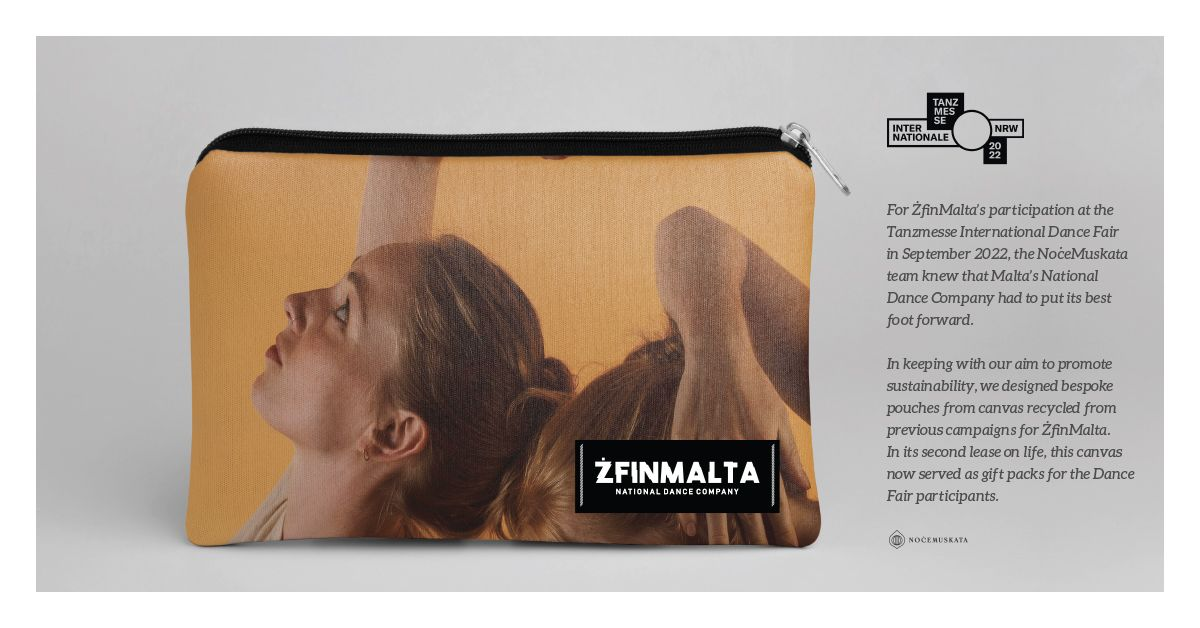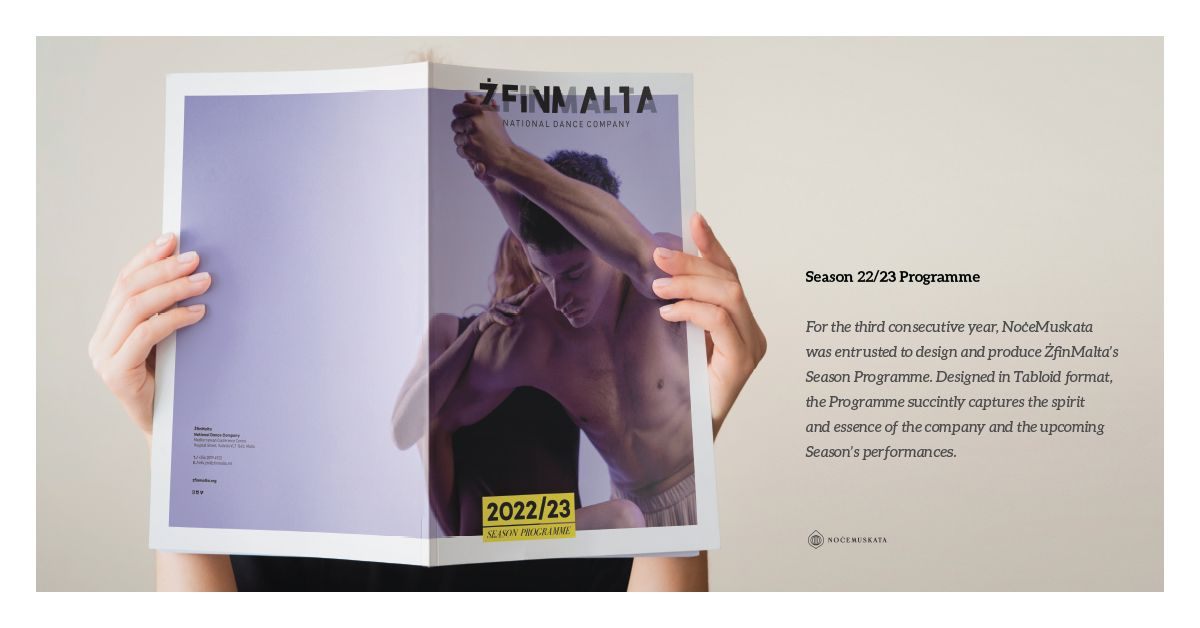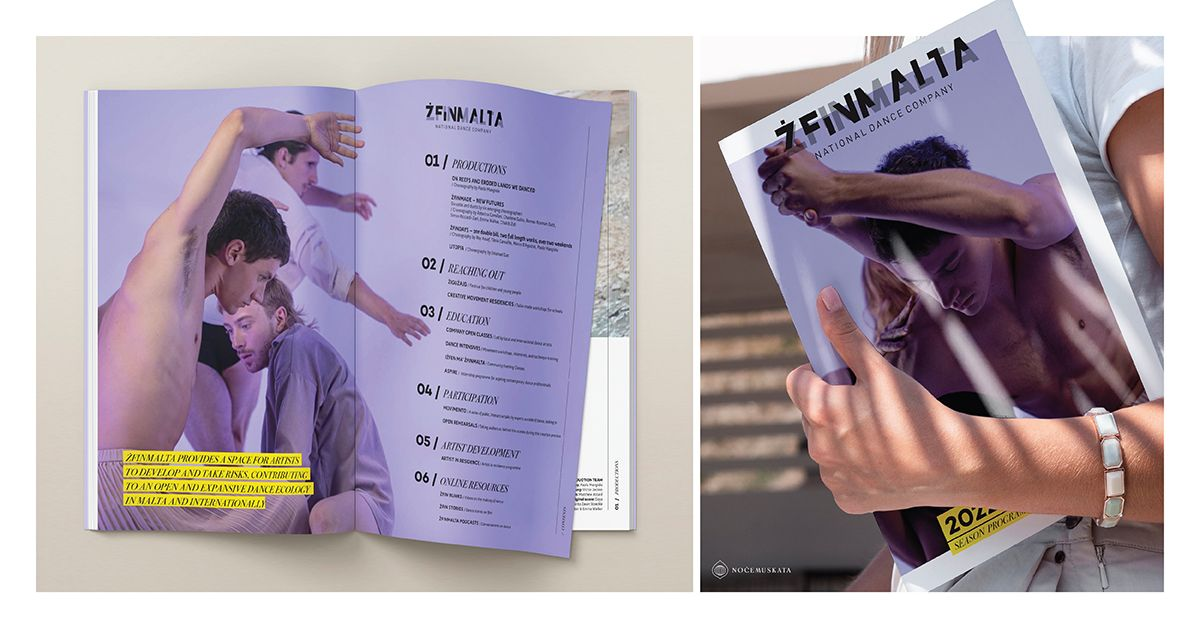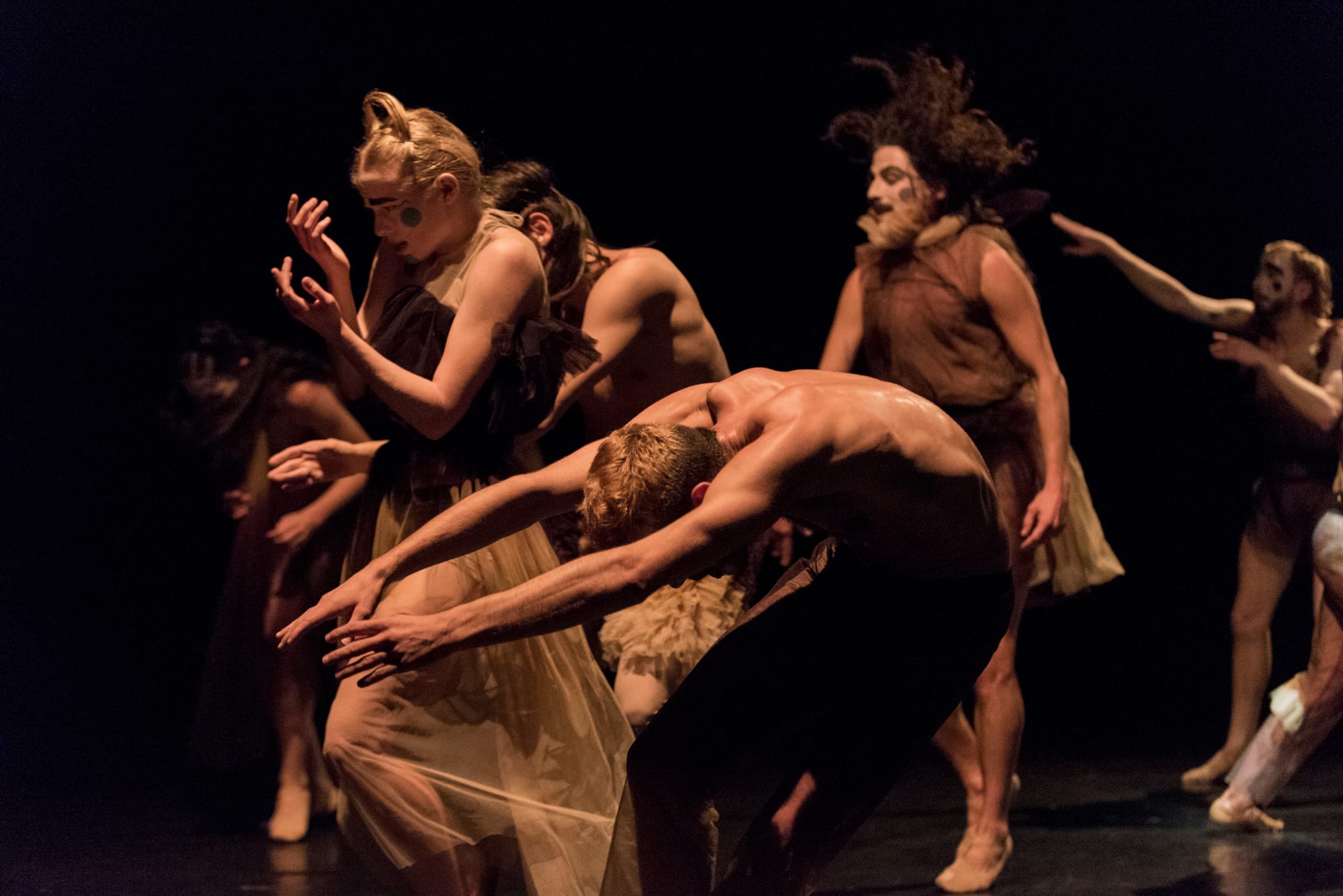
ŻfinMalta
Over the years, ŻfinMalta has always been at the forefront of a budding contemporary art scene in Malta, pioneering fresh thinking about contemporary dance, and raising the sector’s profile considerably. The company, under the artistic director of Paolo Mangiola, offers a space where artists can take risks, contributing to an open and expansive dance ecology, and providing opportunities for both emerging and established dance professionals to realise their full potential.
NoċeMuskata prides itself with ensuring that these core goals and principles shine through the company’s communication strategy in every single way. Tasked with developing, managing, and implementing an integrated marketing and communications plan for both the local and international markets, we strive to grow the company’s audience, both physically and virtually, and enhancing engagement and a deep connection by making ŻfinMalta’s exceptional work shine through.



An interview with Sarah-Lee Zammit, Director of NoċeMuskata and Paolo Mangiola, Artistic Director of ŻfinMalta.
Date: 20th December 2021
Q: You’ve been working together for two years now. Can you tell us a little bit about your collaboration, how you work together and what has emerged through this collaboration?
P: When we started working with NoċeMuskata, we were pleased to discover that their vision and values were aligned with our own. We share the vision of bringing the arts closer to the people, the people closer to the arts.
SL: Yes, absolutely. Unfortunately many people perceive there to be a gap that banishes the arts to the realm of lofty intellectualism, out of reach of ‘normal people’. We, on the other hand, feel that the arts are actually very much akin to our first attempts at expression.
P: Yes, creative expression is an instinct that we have from earliest childhood. Children use colours, objects, movement, sounds, all kinds of media to express themselves instinctively. Throughout history, tribal societies have used a variety of art forms to pass on their stories and, through them, their cultural norms.
Q: Do you feel that people still express themselves through art?
SL: In our society, some people choose to evolve this instinct to create through learning techniques and creating their own ‘vocabulary’ to express themselves in their chosen art form, these are the people we call ‘artists’. But I believe that anyone can reconnect to this instinct at any time in their lives and can thus interact meaningfully with the arts. Not everyone has to take it to the professional level, we can also engage in the arts as a hobby, either by creating or by engaging as an audience.
Q: How does ŻfinMalta bring the arts closer to the people?
P: At ŻfinMalta our art form is dance. We use movement to tell stories, to explore ideas and the world from a different perspective, to allow us to express things that cannot adequately be put into words. What we hope to evoke in the audience is a reaction to what they see, this could be a sense of recognition or wonder, of curiosity or validation, of fascination, even surprise or shock at times.
Whatever they might feel, our hope is that it will open new perspectives and inspire new thoughts, lead to learning and personal growth in one way or another.
Q: What benefits do you feel the arts can offer us?
SL: In this day and age, where we spend so much time in ‘echo chambers’ (i.e. spaces where everyone agrees with us), the arts have an important role to play. The algorithms we interact with and that shape our experience to a large extent are set to just give us more of what we already believe, more of what we like to hear. While this might be comforting in some ways, there is a danger of becoming intellectually lazy, of not examining different perspectives anymore, of avoiding critical thought because it is uncomfortable and challenges the status quo.
The arts have always played a role in shaking people up, opening up different perspectives, enriching the debate, allowing us to explore feelings that are not in line with mainstream opinions and trends. People who feel misunderstood or marginalized, people who are looking for intellectual stimulation, people who simply want to expand their horizons have found solace in the arts. It doesn’t matter where they come from, what kind of education they have or what they do for a living, the arts can touch anyone’s life because the topics we discuss are universal to all humans.
P: Working with NoċeMuskata has allowed us to reach more people, to allow larger audiences to benefit by finding consolation, escaping to the comfort of a beautiful story, provoking new thoughts, or opening up additional perspectives. As we evolve together, NoċeMuskata and ŻfinMalta side-by-side, we both thrive in this collaboration that is all about allowing the Maltese people to be more actively engaged with the arts.
Image: ŻfinMalta Weaving Chaos
Credits: Marija Grech


